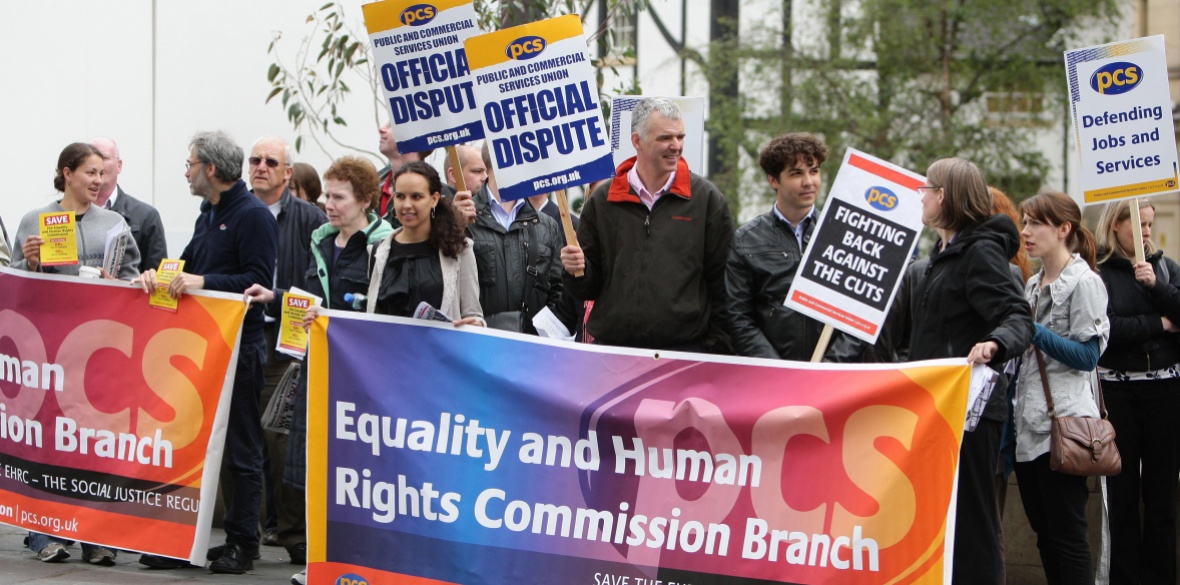SERIOUS conflict of interest questions dogging the Equality and Human Rights Commission (EHRC) probe into anti-semitism in the Labour Party suggest that the agency cannot be trusted to conduct an impartial investigation.
The links between EHRC board members and private companies, dramatically revealed by the Morning Star in a series of exposés over the past week, cast doubt on its ability to act as a disinterested assessor of rights and equalities.
The situation is made worse by the political context. Labour is not the loyal Establishment lapdog of the fairly recent past.
If the EHRC board is peopled by a lawyer whose firm profited from defending blacklisters and represented Serco against Kurdish refugees, bankers who have held top roles at Barclays and Lloyd’s, a former finance director of outsourcing firm Mitie, a board member at Big Six energy firm SSE (which would be nationalised if Labour comes to power on its current programme) and an executive who held a top role at oil giant Shell from 1998-2001 at a time when the company stood accused of “complicity in murder, rape and torture” by the Nigerian government (in the words of Amnesty International), how can it possibly be argued that it would be indifferent to the prospect of a Labour government led by Jeremy Corbyn?
The party he leads is committed to transformational policies that would see private-sector profiteers booted out of our public services, curbs on the reckless gambling of the big banks, a public inquiry into illegal blacklisting and a humane immigration and asylum policy that would tackle the successive scandals involving disgraced security firms Serco and G4S. In other words, an end to the racket that has made many EHRC board members rich.
The scandal is not really that individual EHRC board members will seek to fix the outcomes of investigations in order to personally benefit, though that cannot be ruled out despite the commission’s insistence that it has “robust procedures and policies in place to manage conflicts of interests or perceived conflicts of interests.”
It is rather that this is an Establishment agency inextricably entangled with the power networks of British capitalism.
Criticism of the EHRC for failing to protect victims of discrimination has been rife for years. In 2011 grassroots activists’ group Disabled People Against Cuts (DPAC) even threatened to occupy its headquarters in protest at what it said was the commission’s failure to “uphold disabled people’s human rights,” only calling off the action after the EHRC conceded a last-minute meeting.
The autobiography of Disabled Rights Commission (DRC) chair Sir Bert Massie, published posthumously this year, paints a similar picture of disability rights being downplayed or ignored once the DRC was folded into the broader EHRC in 2007.
This is no surprise: an institution stocked with Establishment insiders is hardly likely to be a vigorous champion of the underdog. It may, within particular contexts, take a stand against prejudice or discrimination — it could hardly be expected to challenge inequality or oppression when they are integral to the economic system.
For the current leadership of the Labour Party, there’s the rub. The accusations of anti-semitism directed at Corbyn are political. They form part of a sustained campaign to discredit and defeat a political leader whose record of battling all forms of prejudice is actually exceptional.
Their widespread currency does not rest on anything approaching convincing evidence, but on the willingness of dishonest opponents and an unashamedly partisan pro-Establishment media to repeat them ad nauseam.
A political attack requires a political response. There is no part of the British state which will act as a neutral arbiter between capitalism and socialism and expecting an impartial probe by the EHRC or any other institution into Corbyn’s Labour is dangerously naive.
The left must challenge the very premise of this unwarranted investigation and expose the utter unsuitability of the organisation tasked with it.








